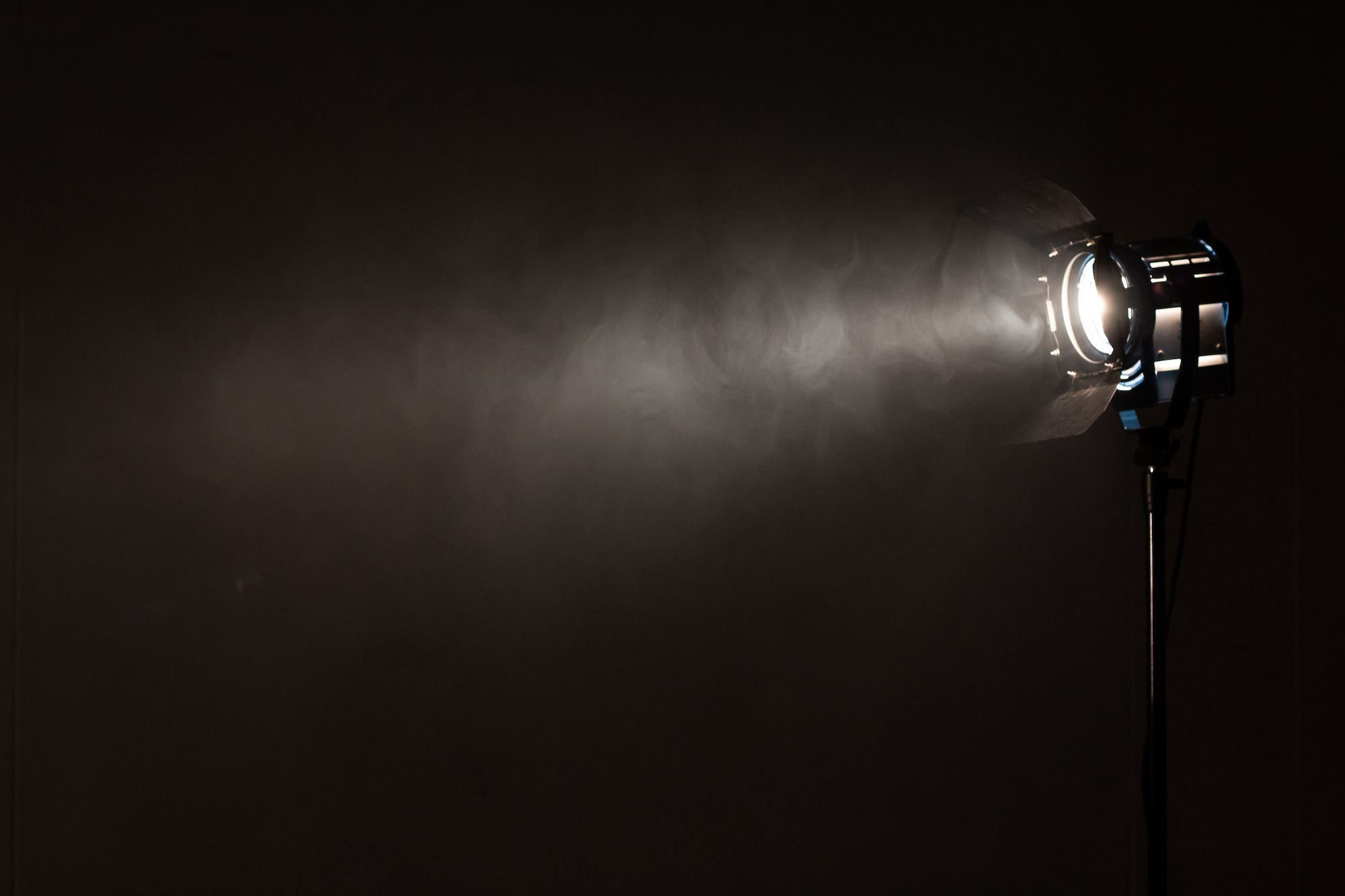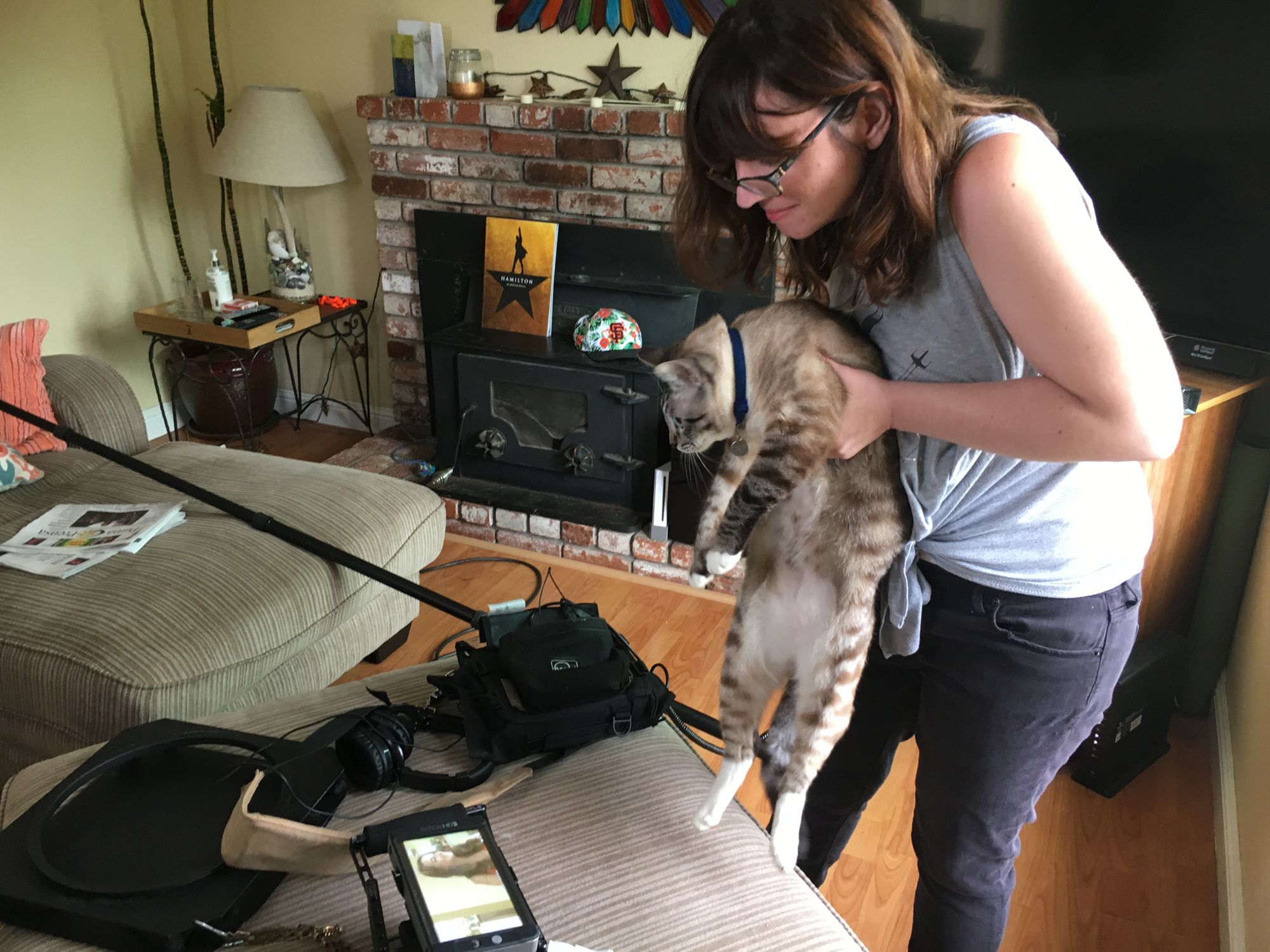
You're Never Ready to Make a Movie, So Make One
A question that always seems to plague newer filmmakers is whether they are ready to make a feature. Maybe you've made a few shorts, maybe you've written a full-length script that's done well in competitions, but are you ready to make the leap to feature films?
The answer is no.
And also, so what?
Preparation and study is obviously invaluable to making a good first feature. You should, of course, know your craft as a writer or director, have an understanding of how a set works, and have the mental and physical stamina to be able to survive very long days at work. Workshops, film school, shooting shorts with your friends, and volunteering to work on sets can give you all of this experience.
But even after completing all of that, you may still feel woefully under-prepared to handle the scope and schedule of a feature. I'm here to tell you: that's fine. In fact, that's normal.
You aren't ready. Make your movie.
In my own personal experience, I found as I got further and further into the process of making my first feature, What Lies West, the more overwhelmed I was by the things I didn't even know I had to know. Yes, I had been writing scripts for more than a decade and felt comfortable with that aspect, and yes, I had acted and directed theater in college, so I felt able to communicate with my actors in ways they understood, but the deep water of running a set and managing post-production certainly felt over my head.
Even with a film school education and years of training, what did I know about how to negotiate locations, deal with cranky or disruptive locals, or handle a 14-hour workday on two hours of sleep? What did I know about music rights, or color correction, or how big the text needs to be on an insert of a phone for someone sitting in a theater to read it?
The hard truth of filmmaking is you aren't going to feel ready, even with extensive training. And that's because you're not. Watching films is a passive activity, but making films is much more akin to a theater performance. It’s a kind of art that only lives in the doing, which means if you want to get better at it, you simply have to do it. If you wanted to be a painter, you could read all the books and watch all the tutorials you want, but there still comes a moment when you have to put brush to canvas, and in that moment, you learn how much you don't know about what you're doing. It’s an inevitable part of the experience of turning theory into craft, and one to approach with gusto, not fear.
If you're experiencing the “not ready” panic, it's a good time to sit down and look at what directors you admire have to say about their own first films.
Steven Soderbergh made his career off the smash success of his debut film, Sex, Lies, and Videotape, but in speaking about it with Filmmaker Magazine, he admits “In retrospect, there were a few times when I’m not sure why the camera’s moving other than the fact that I was so excited that I had an actual dolly that I thought, well, we should use it, which is the classic young filmmaker mistake.” Similarly, Pedro Almodovar jokes his first movie, Pepi, Luci Bom, is “a film full of defects,” while Wes Anderson says of his debut, “I remember when we were shooting Bottle Rocket that there were a couple of times when I thought, ‘I’m not sure exactly how to do this, so we’re just going to do something and get through it.’"
Over and over again, you'll hear celebrated filmmakers talk about their first movies as a steep learning curve, full of mistakes. Their experiences show that filmmaking itself is a practice, one that you have to perform over and over again to become truly competent. No matter where you start on the spectrum of talent, knowledge, and ability, you will be a far better filmmaker at the end of your first movie than when you started.

Beyond the experiences of nearly every great filmmaker encouraging you to dive off the deep end into making your first feature, here’s one other critical lifejacket to cling to: you're not alone. In our auteur-focused culture, it's easy to place the entire burden of creativity squarely on the writer or director's shoulders.
The truth, however, is a breath of fresh air: you are there to coordinate the creativity of other talented people, not supply it all yourself.
While you've been doing your best to prepare as a filmmaker, your cinematographer, set designer, gaffer, makeup team, editors, producers, and actors have been doing the same. When you have a pitfall in your own experience, you are going to be surrounded with other professionals ready to help you brainstorm solutions. It is a windfall to be surrounded by collaborators, and a waste to assume they’re just there to do your bidding—especially when you aren’t sure your bidding is any good.
Learning to trust and welcome other people's help is just another thing you'll pick up as you all struggle forward together, and one of the best lessons filmmaking can teach. You’ll all be afraid together, and you’ll all improve together along the journey.
So take heart: while the fear of not being ready can feel paralyzing, in truth, it may be the only thing holding you back from launching your career as a feature filmmaker. Release your worries about readiness and start worrying more about raising money, finding your collaborators, and most importantly catering, because it’s a professional guarantee that bad food is going to cause more problems on set than your abilities. (See?! The things you learn!)
*Feature photo by Rattanachai (Adobe)
Screenwriter and Producer Kay Tuxford will walk you through step-by-step how to choose a good first film script to write, produce, and get your short in front of an audience in her Symposium session, Making Your First Short Film.
